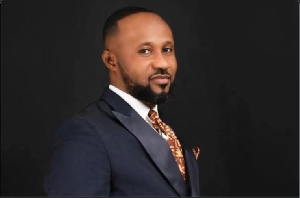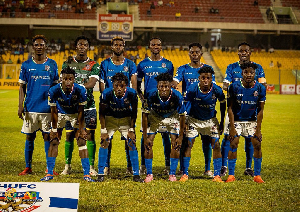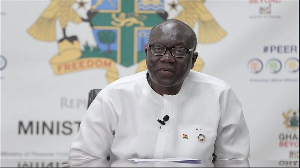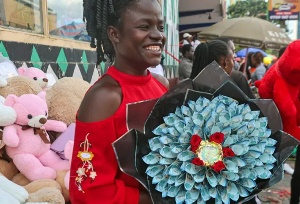LEE Kuan Yew, in his memoirs From Third World to First: The Singapore Story; 1965-2000 made a profound statement that Ghanaians must learn from if our hopes of attaining a middle income status by the year 2010 is not to remain a mere wish.
He said, “We cannot afford to forget that public order, personal security, economic and social progress and prosperity are not the natural order of things; that they depend on ceaseless effort and attention from honest and effective government that the people must elect.”
According to Lee, Singaporeans had to work against seemingly insuperable odds to make it from poverty to prosperity.
It should be abundantly clear to us by now that the only way to get out of poverty is through hard work. There is a lot of dignity in labour, but most people have abandoned hard work for the easy way out. Even the religious bodies which preach against dishonesty and other negative activities offer front-line roles to their rich members without questioning the sources of their incomes.
On the eve of Ghana’s independence, the late Dr Kwame Nkrumah, flanked by other nationalists, proclaimed that the blackman is capable of managing his own affairs. He also declared that after 10 years, the country would be the showpiece of the continent and, indeed, the world.
Today, what is the picture? Sadly enough, the country is at the crossroads. The ship of state appears to be sinking because the essence of independence has been lost on us and everybody is groping in the dark to find solutions to the problems that confront us.
After 46 years of independence, many people still question the rationale behind the agitation for self-rule.
In retrospect, those who have always held the view that our independence is only an anthem and flag sovereign nation are being vindicated. The country has its own Executive, Parliament, Judiciary and other institutions of state which are headed by Ghanaians, but the essence of self-rule is yet to be attained.
Whether or not the people have mismanaged everything is a debatable issue, though, but all the same, the journey to attain the vision of affordable housing, food, clothing, education and health is still rough.
First order needs are still far from the reach of majority of the people, although the country is rich by all standards. Some of the so-called advanced societies do not have the resources at our disposal.
In basic schools, our teachers tell us that necessity is the mother of invention. Those who have attained prosperity did not come by it as a matter of course. They worked for it, but what about us? Our present level of deprivation should compel us to think and find ways to improve our well-being.
If the concerns are that the country is poor and, therefore, everybody must sacrifice for a better future, then all Ghanaians must demonstrate their readiness to sacrifice, including the leaders. Nobody will suggest that in trying to sacrifice for the mutual good, our leaders will not be supported to provide the kind of leadership that will take us out of deprivations such as abject poverty, disease and hunger.
The country is rich in human and natural resources. Not too long ago, this writer suggested that those who think the country lacks the capacity for general improvement in the lifestyles of the people should look at the cars on the roads and the mansions springing up in the emerging suburbs of Accra and other major towns.
The best types of cars cost about half a billion cedis and are driven on roads riddled with potholes and manholes. The mansions are in suburbs where there are no drainage facilities, roads or even utilities.
Owners of these facilities do not care about the roads with potholes and the slums they are creating and even if they have the means, they will not contribute a pesewa towards the provision of such facilities.
It is heartaching that even as a beggar nation which has to adopt the HIPC initiative in order to come out of the debt overhang, the country continues giving fat incentives to its functionaries when it has become abundantly clear that the economy cannot sustain them.
Is it still economically prudent for the state to provide two vehicles and the other freebies for every minister of state and expect to move away from poverty to prosperity? Top officials of state enjoy similar incentives. Workers agitations are as a result of the very attractive conditions of service of public officials which the colonialists will envy and which can never be sustained in the advanced economies.
President J. A. Kufuor, on January 7, 2001, when he assumed the reins of government promised to cut the country’s cloth according to its size. That pledge seems not to be in practice. There is no way a HIPC country such as Ghana can sustain the extravagant lifestyles of political office holders and public officials and make some savings to develop the country.
As all the people pledge to work hard, they must also sacrifice. Nothing will be achieved, if our leaders continue to call on the people to sacrifice or tighten their belts while they have loosened theirs or have none on at all.
It is taking too long to see the kind of leadership that can take us out of the woods. President Kufuor should demonstrate leadership by example.
Luckily for him, the goodwill and the euphoria with which the people welcomed him to the throne have not waned yet as the people appreciate the dire straits in which the economy is. But for how long can the people wait?
The hour to keep the people’s faith in the NPP government is now and it can only be done if steps are taken to erase the perception that corruption is still rife and threatening the body politic.
Professor Gyimah Boadi of CCD-Ghana was quoted recently as saying that the fight against corruption is waning because the President himself hardly talks about his policy of zero tolerance for corruption. Positive change also remains a dream since everybody seems to be complaining about worsening economic conditions. The President has, however, acknowledged that it will get worse before it gets better but it is high time the people had a break from the hardships.
The day our leaders will fire those cited for corruption rather than shield them or public office holders will do the honourable thing by resigning for their acts of omission or commission, the country will witness a rebirth.
There are no standards by which public office holders can be judged. The Constitution requires that certain categories of public office holders declare their assets but these declarations are only cosmetic because since 1993, the exercise has not helped to encourage transparency in public life.
There was some excitement when Mallam Isa was jailed for stealing $46,000. Victor Selormey followed for embezzling about $1.3 million. This year Kwame Peprah, Ibrahim Adam and Yankey were jailed for causing financial loss to the state. Mallam Isa wanted to refund the money to gain his freedom but it was turned down. Selormey also tried.
Another area of concern is the disregard for the law with impunity. For personal gain, those entrusted with the enforcement of the law have turned a blind eye to the infractions. All over Accra there are structures with the inscription “stop work” or “remove” by a certain date on the orders of the AMA but the structures are still there. At the Kwame Nkrumah Circle, the centre of the city, all kinds of structures have sprung up for trading activities, which should not be the case.
Last weekend, a building collapsed in Kumasi, killing one person. There was no permit for the structure.
About a year ago, two other buildings collapsed in Accra. A committee was set up which recommended the prosecution of the owners and officials who supervised the construction and yet they are still free people. In a society where vice has become virtue and wrongdoing is rewarded by our failure to sanction, any attempt to progress will remain a mirage.














